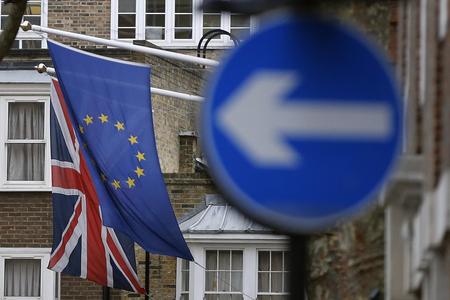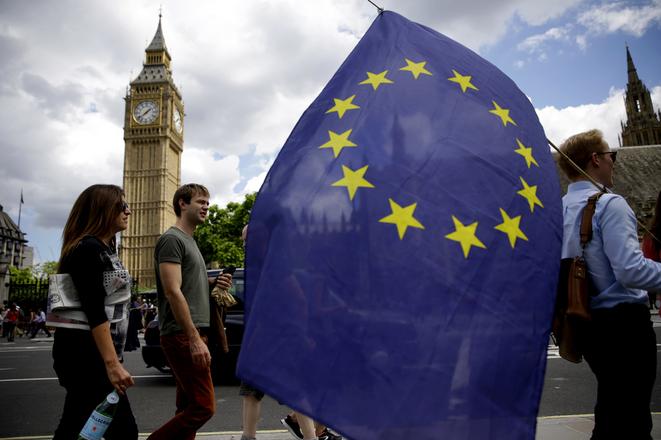The decision of British citizens to withdraw from the European Union has terrified both people from EU countries working or studying in the British Isles and also Brits who currently live elsewhere in the EU. Although no big Brexit-related changes are expected to happen in anyone’s life, Brits in Slovakia mostly believe their countrymen’s decision was irresponsible and has set the country back decades.
The whole essence of existence and national identity has been changed due to the half of citizens who voted for Brexit, according to John Dale, media consultant and musician working in Slovakia.
“To be completely honest, while on Thursday I would have been on my imperial British high horse saying we do not like that, now I am questioning where I come from,” Dale told The Slovak Spectator.
The UK referendum which was held on June 23, 2016, was won by the leave campaign who out voted those people who wanted to remain by 52 to 48 percent. It will now be followed by a likely two-year period full of negotiations, which will formally only start after the UK invokes Article 50 of the Lisbon Treaty.
Meanwhile, the British Embassy in Slovakia reassures Brits living in the country that there will be no immediate changes in their circumstances. The UK must now consider and negotiate new arrangements with the EU including the rights to live, work or retire with the top priorities being safety, welfare and the livelihoods of UK citizens overseas, according to the embassy’s press officer Monika Holečková.
“Nothing will change overnight as a result of this decision,” Holečková told The Slovak Spectator.
Would Brits go back home?
Many Brits abroad started looking at their future possibilities even before the referendum. A couple of months before the UK chose the leave campaign, the gov.uk website had not really been responding in the usual way because it was overwhelmed with questions regarding passports and the eventual Brexit, Dale said.
Another UK citizen living in Slovakia, a secondary-school English teacher Andrew Gibson, is considering his staying in Slovakia as he meets lots of uncomfortable questions from Slovaks about why the majority of those who voted want to leave the EU.
“This has given rise to my feeling quite self-conscious about my position here,” Gibson told The Slovak Spectator.
In the UK there is only a small minority of residents who do not want immigrants there although it is not in line with current European trends of social inclusion, Gibson said, adding that this minority is another reason why he does not want to return.
In contrast, Dale does not rule out the option to go back to the UK in the future.
“Unfortunately, the same question everyone is asking now is whether there will be anything like Great Britain to go back to,” Dale said.

Mass return not expected
Another English teacher based in Slovakia, Jonathan Hill, does not expect a mass return of the British community living abroad back to the UK.
There are many reasons why Brits emigrate abroad including personal motives, family, work, or living in places like France, Portugal or Spain sought out for year round sunshine, pleasant food and climate, Hill pointed out.
“If you are an economically productive person contributing to the state where you live why should you not be able to live and work there while proving respect to the local customs and regulations,” Hill told The Slovak Spectator.
Perception of the campaign
UK citizens have had years of anti-EU news in the media and a large number of the population are quite sceptical about the EU project, thus the issues of sustainable economics serving the interests of the UK, sovereignty, democracy and immigration come into play, according to Gibson.
“The referendum was really about the UK and showed the frustration and anger that had built up inside the people,” Gibson said.
Issues like immigration and the high cost of the EU to the UK were unfairly skewed towards the leave camp, according to Hill.
Today’s wars are won by Facebook and social media which in this case was full of misinformation and allegations without a source, Dale opines. While the media automatically assumed that every single person who is eligible for the vote has full knowledge about what they are voting for, a couple of years ago people would not even known how many countries are in the EU, where Slovakia is, or what Schengen is.
“These issues will come out now and I think some people will feel stupid especially when they see a border raised between Ireland and Northern Ireland,” Dale said, “It is a syndrome which we have seen in Slovakia with Kotleba as well.”

Lack of experience
The Brexit is not an appealing prospect for most Brits around the EU. Before the referendum they tried to speak with their friends and family to persuade them to vote against leaving. British expatriates in central Europe have experience of more than 20 years about “what kind of hell it is being here and at the same time not being in the EU”, said Dale.
Once a person lives outside of the UK for a lengthy period, much like himself, it broadens his horizons and he realises that there are often two sides to a story. Hill believes that in comparison a lot of UK residents did not have the full facts in front of them before deciding.
A great number of people did not understand what was at stake – peace in Northern Ireland or Scotland, a rise in racially motivated incidents or anger at the British government, Gibson thinks.
While Dale is originally from one of the Labour strongholds in northeast England, where a pretty strong leave campaign went on, he spent a month before the referendum explaining how it would affect him and his family. Media manipulation created opinions in people with no experience on both sides, he pointed out.
“Six months before the referendum, some people still talked about what is going on with migrants in Europe and did not feel to be a part of Europe,” Dale said.

The EU should change
While Gibson heard many people say that the EU needs reforms, is doomed to fail, is authoritarian, and cripples economies, he still sees its main asset in its having a stabilising impact on Europe.
“The EU has brought people together and used a strong economic hand to keep some countries from getting out of line which has maintained stability in terms of peace,” Gibson said.
If the EU were to be replaced by something else then it would be just like reinventing the wheel, and if it fails, countries will turn against each other and nationalism will take control of people to the misfortune of all, Gibson added.
“The EU needs to maintain communities of people working together whether international or local to avoid a rise in dissent,” Gibson said.



 (source: TASR/AP)
(source: TASR/AP)